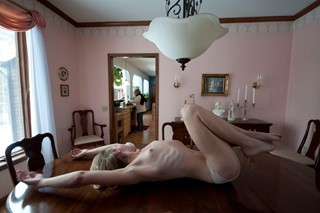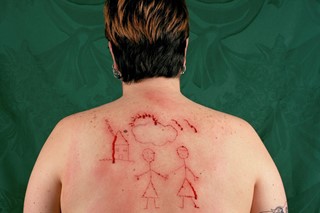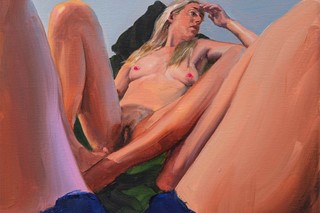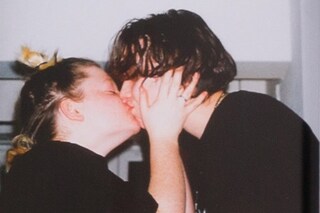Dreaming of Home, a new exhibition in New York focusing on queer domestic life, features work by Catherine Opie, Nicole Eisenman, Clifford Prince King and more
Dreaming of Home, a group exhibition at New York’s Leslie-Lohman Museum, explores the “comforts and complications” of LGBTQ+ domestic life. It spans the work of 20 artists across 30 years, taking Catherine Opie’s 1993 photograph Self-Portrait/Cutting as its starting point. In this landmark – still arresting – image, Opie is shown from the back, with shortly cropped hair revealing a child’s drawing etched into her back. It’s a family portrait with a simple house structure, the sun appearing from behind a cloud, and two figures – implied to both be mothers of the child – dressed in skirts and holding hands.
Self-Portrait/Cutting is a powerful image, combining the warmth of family life with visceral, bodily pain. The work also happens to have been shown twice in the TV show The L-Word; Opie herself appeared in series two. “If you’re a lesbian in the West, you’ve probably watched The L-Word,” says the exhibition’s curator Gemma Rolls-Bentley. “I also really remember Catherine having a solo show, Girlfriends, at Stephen Friedman in 2011. It was soon after I moved to London with my first girlfriend, and I was struggling to find peace with my sexuality. The show included black and white photographs from her portrait series of lesbians, people from her leather community. Seeing those photographs in a very formal, established gallery in Mayfair, at a point in my life where I’d only recently come out, was an anchor for me.”
Opie has been a pioneering voice around motherhood since the 1990s. Her works, often featuring herself, challenge the stereotypical narrative. While the exhibition takes an expanded view of the idea of “home”, the theme of parenthood is an important one for Rolls-Bentley. “It’s really interesting seeing how queer people’s relationships with children are targeted by conservatives,” she says. “It’s something I’m very aware of as a parent. After Self-Portrait/Cutting, Catherine did Self-Portrait/Pervert and then Self-Portrait/Nursing; I always think of her as an iconic queer parent. Thinking about this particular political climate, parenthood is a big part of the show.”
Opie’s image hangs alongside works by photographers of the next generation such as Rene Matić, Laurence Philomene and Charmaine Poh, and contemporary painters including Jenna Gribbon and Nicole Eisenman. Together, the works chart an evolving three decades in which progress has been made politically and culturally, alongside vitriolic backlash, which has seen numerous regressive steps, such as America’s so-called ‘don’t say gay’ bills and Italy’s recent removal of lesbian mothers from their children’s birth certificates.
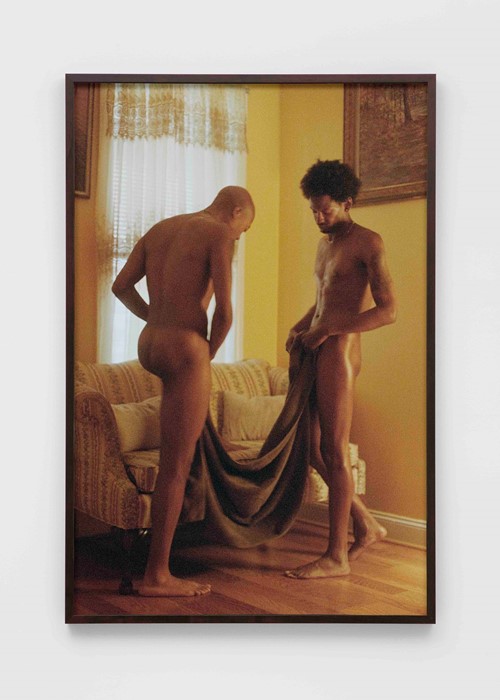
“The one step forwards, two steps back feeling has been fairly consistent through the 30-year period,” says Rolls-Bentley. “You might have some years where it feels like we’re making real progress and we see marriage equality and legal changes around homosexuality in different countries, but there are always new challenges. I think a lot of the new challenges are particularly faced by the trans community.”
Rolls-Bentley has included various global perspectives in the exhibition, as each country – and even states and regions within individual countries – takes such an individual approach to LGBTQ+ life and legislation. “Charmaine’s work is very interesting,” she says. “Through talking to her I learned a lot about the situation for LGBTQIA+ people in Singapore. I hope people will learn more about global queer experiences, from artists like Whiskey Chow [the London-based, Chinese activist and drag king], and Leilah Babirye [a Ugandan artist living in New York].”
She also highlights the importance of love and joy, something she sees as central to the community. This is expressed especially in Rene Matić’s photographs, which are full of passion and tender affection. “I feel I learn a lot through Rene’s work about the younger generation and I think they articulate it in a very thoughtful and sophisticated way,” says Rolls-Bentley. She also points to the sculpture of Leeds-based Sarah Francis as offering a fresh outlook. “Their work explores a lot about the body, consent, relationship with the land and landscape. The work feels very raw in a similar way to Catherine’s.”
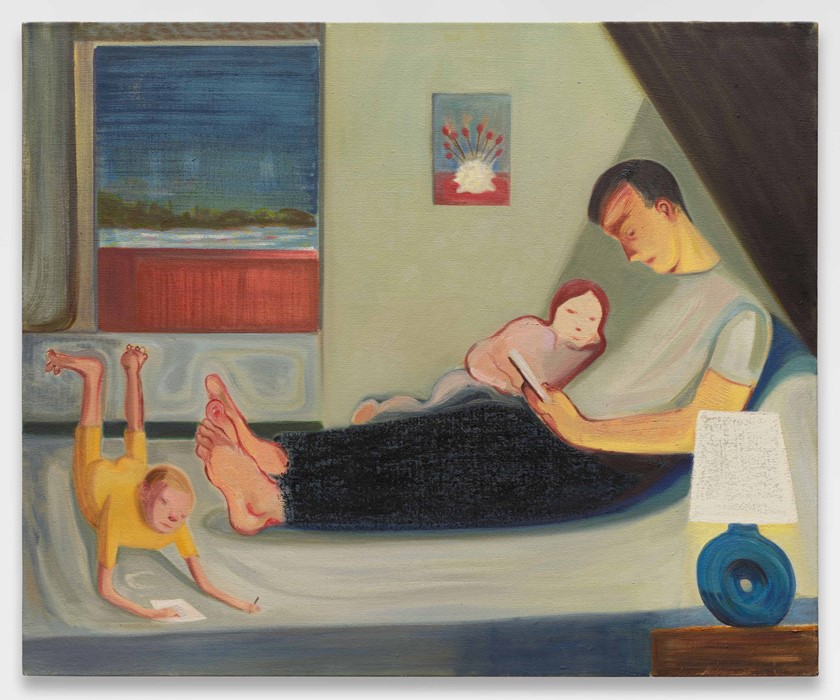
The curator hopes for the exhibition to offer a sense of homecoming and belonging to those within the community, and a point of compassion and education for those who are not. “I really believe in the power of art to make people have empathy and to see other people’s perspectives,” she says. “That’s why I’m a curator. I hope this show will help people get some insight into alternative perspectives. Somebody described it as a queer spiritual homecoming, and I thought that was beautiful.”
Dreaming of Home is on show at Leslie-Lohman Museum in New York until 7 January 2024.
